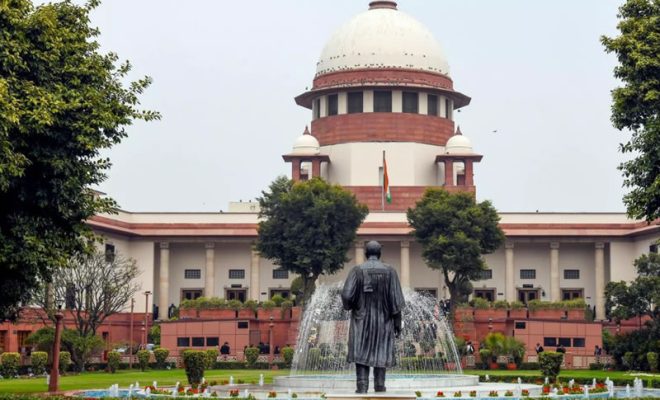Landmark Verdict of SC over the private properties in Article 39(b)

Since 1977, the verdict which states that both public and private resources can be taken into “material resources of the community” under the article 39(b) of the constitution by Justice Krishna Iyer in State of Karnataka. It is followed by the 1982, Sanjeev Coke Manufacturing Company vs Bharat Cooking Coal Ltd quoted Iyer’s view (1997).
The view of Iyer and in Sanjeev Coke’s case regarding the private property has been disagreed by the bench of 9-judges today on November 5, 2024 and announced a landmark verdict over it.
Who are the 9-judges?
- Chief Justice of India (CJI) Chandrachud
Justices
- Hrishikesh Roy
- JB Pardiwala
- Manoj Misra
- Rajesh Bindal
- SC Sharma
- Augustine George Masih
All of them overruled the verdicts after 1978 and they unanimously said that states can take over all the private properties for the ‘material resources of the community”.
- Justice BV Nagarathna (partially agreed)
- Justice Sudhanshu Dhulia (dissented on all aspects)

The Verdict
“Directive Principles of State Policy, (DPSP), Article 39(b) places an obligation on the state to create policy towards securing the ownership and control of the material resources of the community that are so distributed as best to subserve the common good.”
It is said that Iyer’s judgement followed by Sanjeev Coke, “was influenced by a particular school of economic thought. This is evident from various observations made in these judgments.”
“An interpretation of article 39(b), which places all private property within the net of the phrase material resources of the community, only satisfies one of the 3 requirements of the phrase. That is that the goods in question must be a resource. However, it ignores the qualifiers that they must be material and of the community are not meaningless superfluities… The words of the community must be understood as distinct from the individual”
“If Article 39(b) was meant to include all resources owned by an individual, it would state that the ownership and control of resources is so disputed as best to subserve the common good.Similarly, if the provision were to exclude privately owned resources, it would state ownership and control of resources of the state instead of its current phrasing. However, privately owned resources are not excluded as a class, and some private resources may be covered,” said the majority.
“Thus the judgments doubted in the reference before us are incorrect to the extent that they hold that all resources of an individual are part of the community, and thus all private property is covered by the phrase material resources of the community,” it added.
“At the time of independence in the 1950’s and 60’s, given the earlier challenges of our Republic, the focus of the government was on planning a mixed economy, heavy industries, and import substitution policies. Since the decade of the 1990’s or the liberalisation years, there has been a shift towards post pursuing a policy of market based reforms” said CJI Chandrachud while reading out the majority opinion.
Also Read | Modi Censured Violence After Canada Temple Incident



